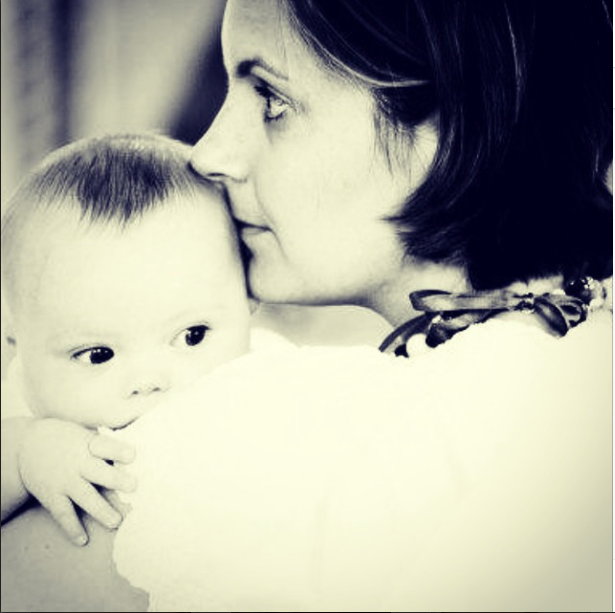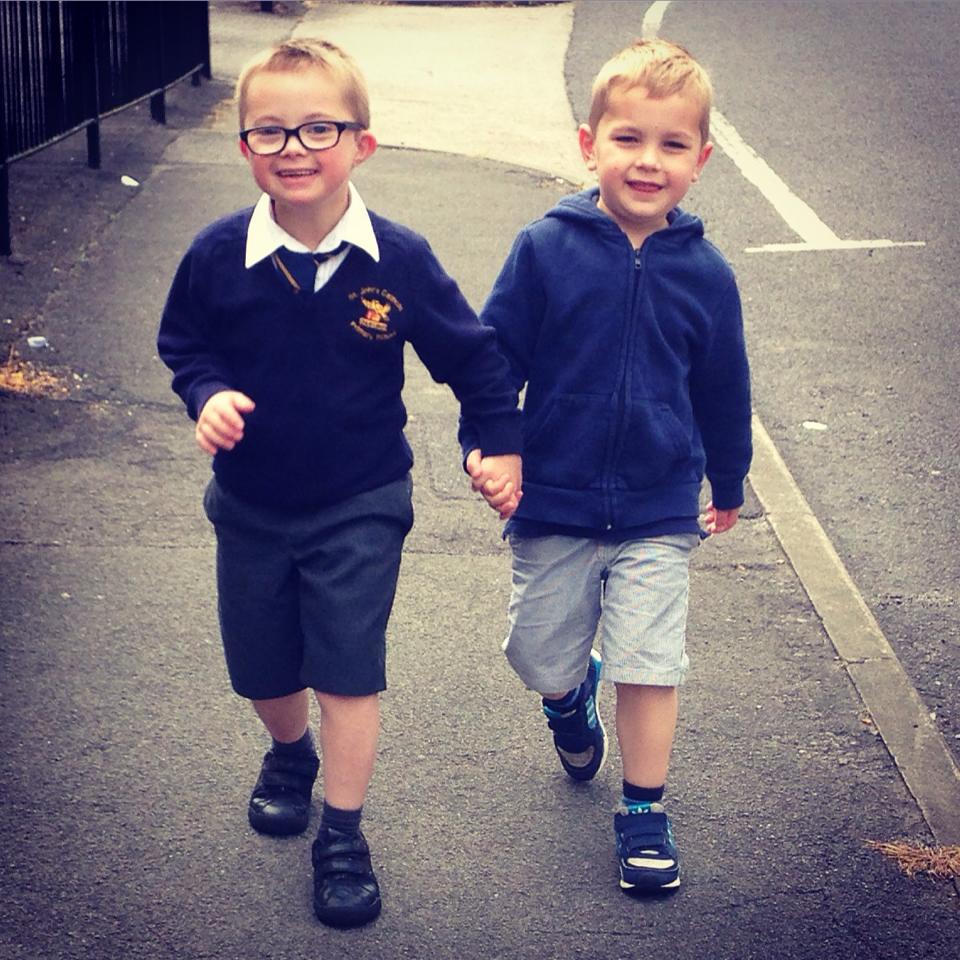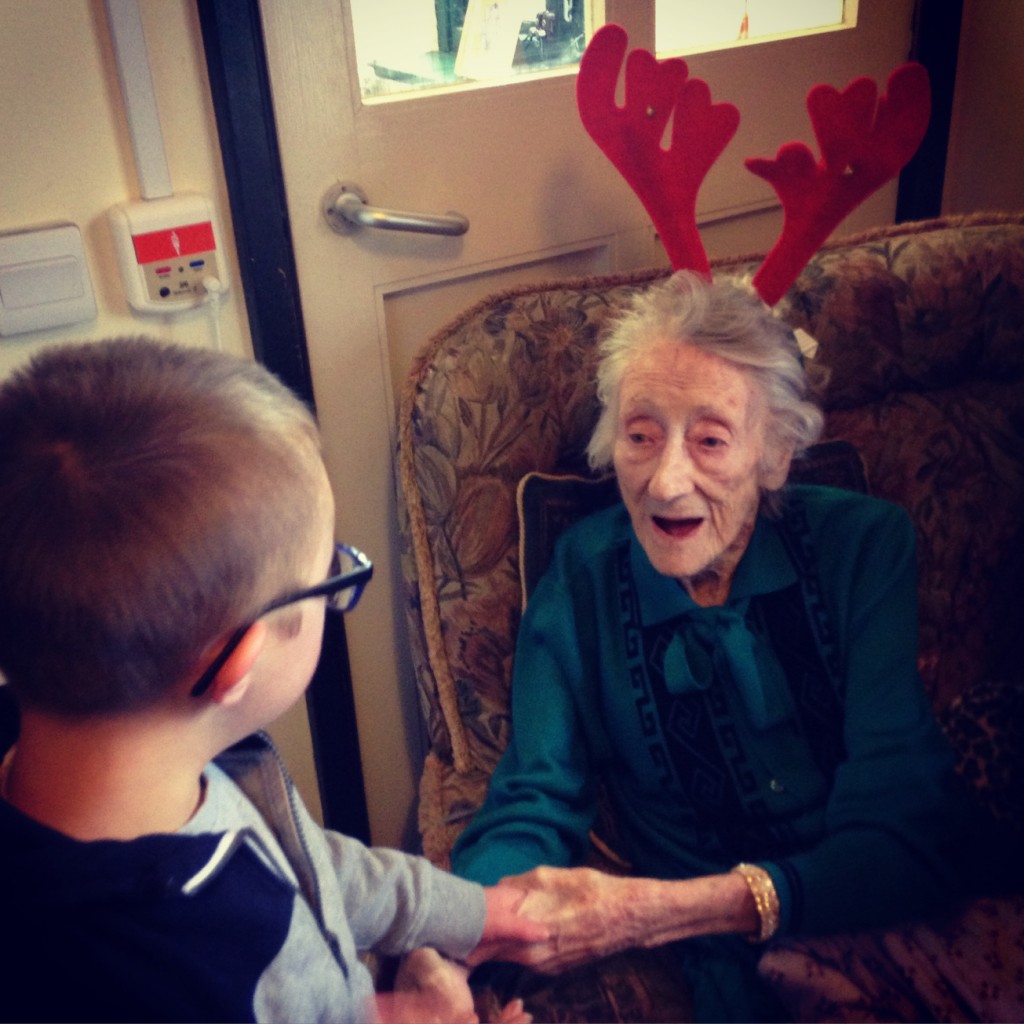“There are undoubtedly some extra challenges. But I genuinely wouldn’t swap Seb for the world and as much as there are extra challenges, there are extra highs too.”
On 21 March 2016 people everywhere will mark the 11th anniversary of World Down Syndrome Day. Driven by the charity Down Syndrome International, people are encouraged to do what they can to raise awareness about what Down Syndrome is, what it means to have Down Syndrome, and how people with Down Syndrome can play a vital role in our communities.
In honour of WDSD 2016, the IPF spoke to the very inspiring Caroline White, mother of Seb White, an 8-year-old with Down Syndrome. Caroline first began speaking out about her son and Down Syndrome on WDSD 2015, when she made a beautiful video with images of her son and the people in his life. A few months later Caroline and Seb were in the news once again after Caroline penned a Facebook post about an employee at TK Maxx in the United Kingdom who helped calm Seb down after a long day. The post thanking the staff member for his kindness and understanding of Down Syndrome was shared 3,000 times.
This year, Caroline is back with another powerful video about being a parent of a child with Down Syndrome. The video highlights how negative journalism, alongside outdated and unbalanced information about Down Syndrome, often leads to people believing that those who have Down Syndrome are of less value than others.
Explaining the reaction she got to this video, Caroline told us: “I have been told by many people that the video moved them to tears (one on a bus!) and as weird as it sounds, this is a great result.”
“The challenges we currently face in the Down Syndrome community are real and most people outside of that community probably have no idea. If I can help draw attention to some of the things going on at the moment in a light-hearted but emotive way – in three minutes – then I am really pleased.”
Raising awareness about Down Syndrome
Caroline, 42, explained that the key way to raise awareness about Down Syndrome is through inclusion. She firmly believes that children and adults with Down Syndrome are the best tool to change attitudes, “just by being seen, heard and included”. She noted that when people with Down Syndrome are shut away from the world, there is a common misconception that everyone with the condition must be the same and that they must all have a miserable life.
However, Caroline said that including those with Down Syndrome in everyday life and integrating them into communities could have a huge impact. To find a success story of this method, you don’t have to look further than Caroline’s son, Seb. The 8-year-old is extremely popular at school and the videos made by his mother illustrate how the children around him don’t see a condition when they look at him, they just see Seb.
“By being included in society and communities, we will spread the word that people with Down Syndrome are individuals just like anyone else, with likes and dislikes and interests and varying personalities.”

Caroline: “I love his face, particularly his bright, blue almond shaped eyes. I often look at him and his beautiful face takes my breath away.” [Image credit: C. White]
“Every year I always end the day on a real high. I feel proud of the community and all the efforts everyone makes, however small, as collaboratively we have a loud voice and social media is the perfect outlet.”
Common misconceptions about the condition
Caroline admits that there are some common misconceptions that people have about those with Down Syndrome. She said that the most common one, while said in a well-meaning way, is that children with Down Syndrome are “loving and happy”.
Caroline explained why this is a misconception that needs to be challenged:
“Seb is both of these things, but so are my other kids. Seb also has other emotions, just like my other kids. It is patronising to assume someone with Down Syndrome is loving and giving and not a lot else.”
Another common misconception that Caroline has often heard as a parent of a child with Down Syndrome is: “He only has it mildly, doesn’t he?”
Caroline explained that there is no spectrum of Down Symdrome and that while it affects people in different ways, “you either have it or you don’t”.
“I think people think Seb has a ‘mild case’ because they are surprised that he is such a typical child – just like all people with Down Syndrome!”

Caroline stresses the need for children with Down Syndrome to be included in everyday life. [Image credit: C. White]
Parenting a child with Down Syndrome
A common notion about children with Down Syndrome is that they will be more challenging to look after. An increasing number of parents are opting to abort babies that they know will have the condition, with recent estimates indicating that around 90% of pregnancies that involve Down Syndrome end in a termination. So what is it really like to parent a child with Down Syndrome?
“He does tend to live in the moment and is not too aware of danger so has a habit to run off with no thought to consequence or danger. He also talks to strangers all the time. All of this can be stressful, but these behaviours are also what is very beautiful about Seb.”
Caroline explained how she loves to watch him because he lives in the moment and “makes the most of every second”. She recalled how he strokes every dog and chats to every passer-by, and particularly how he sees the best in everyone. While this sometimes makes him vulnerable, his mother believes “it is a beautiful quality to have”.
Caroline advises parents of children with Down Syndrome to ignore the text books as much as possible and “just live your own life”. She explained that she read a lot about the condition when Seb was born, however, none of what she feared would happen had actually happened. Seb is the same boy his parents imaged he would be before they received his diagnosis – sporty, bright and witty, with extremely proud parents.
“Your child will be a reflection of you and your family and their life experience and not like any other child with Down Syndrome. Try not to worry about the future and miss out on precious moments.”
Caroline said that something her husband said had a huge impact on her when Seb had just been born. He told her to imagine the day that her son would bounce up to her and say, “Hello mum”. This helped Caroline see Seb as a little boy and not a condition.

Seb visits his 99-year-old great-grandmother, with whom he has a “precious” relationship. [Image credit: C. White]
The Force of Nature: Documenting their lives
In an attempt to raise awareness about the normality of Down Syndrome, Caroline set up a blog to offer people a window into the family’s life. The Force of Nature was predominantly designed to help new parents facing a diagnosis understand the reality of Down Syndrome, however, Caroline also wanted to spread the word to those who may never have experienced Down Syndrome – just like she hadn’t before her son was born.
“Nothing makes me prouder than to get an email from a new parent who has found my blog and found it helpful in dealing with a diagnosis, or a parent who can relate to something I have written. I have also had messages from people who have declined testing because they follow my blog.”
Caroline said that the best thing that ever happened was appearing on BBC Radio 4’s Women’s Hour programme. She said that a woman who was listening to the show had just received a pre-natal diagnosis and had been contemplating an abortion – until she heard about the lives of Caroline and the other mums of children with Down Syndrome.
“Hearing about our lives convinced her to keep the baby and they are now living the same typical life that we do.”
Getting to know Seb
“He has the sharpest wit. He is really funny in a really clever way. We noticed this at a really young age. The best way to get through to Seb is with humour!”
Apart from being the first child with Down Syndrome to star in a major UK television advert, Caroline told IPF that Seb, just like a lot of little boys, would be thrilled if he could grow up to be a professional footballer. If that doesn’t work out, the 8-year-old also has aspirations of becoming a paramedic, policeman or fireman.
When he isn’t aspiring to achieve the best, those around him are most in awe of his ability to see the best in everyone. Caroline explained how he never makes assumptions about anyone and, instead, chooses to chat to them and make up his own mind about them. He doesn’t feel awkward when someone is in a wheelchair or if someone is homeless – they’re all the same in Seb’s eyes.
Seb also has a beautiful relationship with his 99-year-old great grandmother. Caroline explained that while her other children were slightly nervous everytime they visit her due to the unfamiliar sights and sounds, Seb marches over to her, holds her hand and kisses her.
“The last time we visited she couldn’t hear well so we told him she was deaf and he started using Makaton (sign language) with her. Gorgeous. Just the other week we were in town and he stopped to stroke a homeless man’s dog. They got chatting and when we eventually left, the homeless man told me, ‘You’ve got a diamond there. Precious.’ And he is.”

